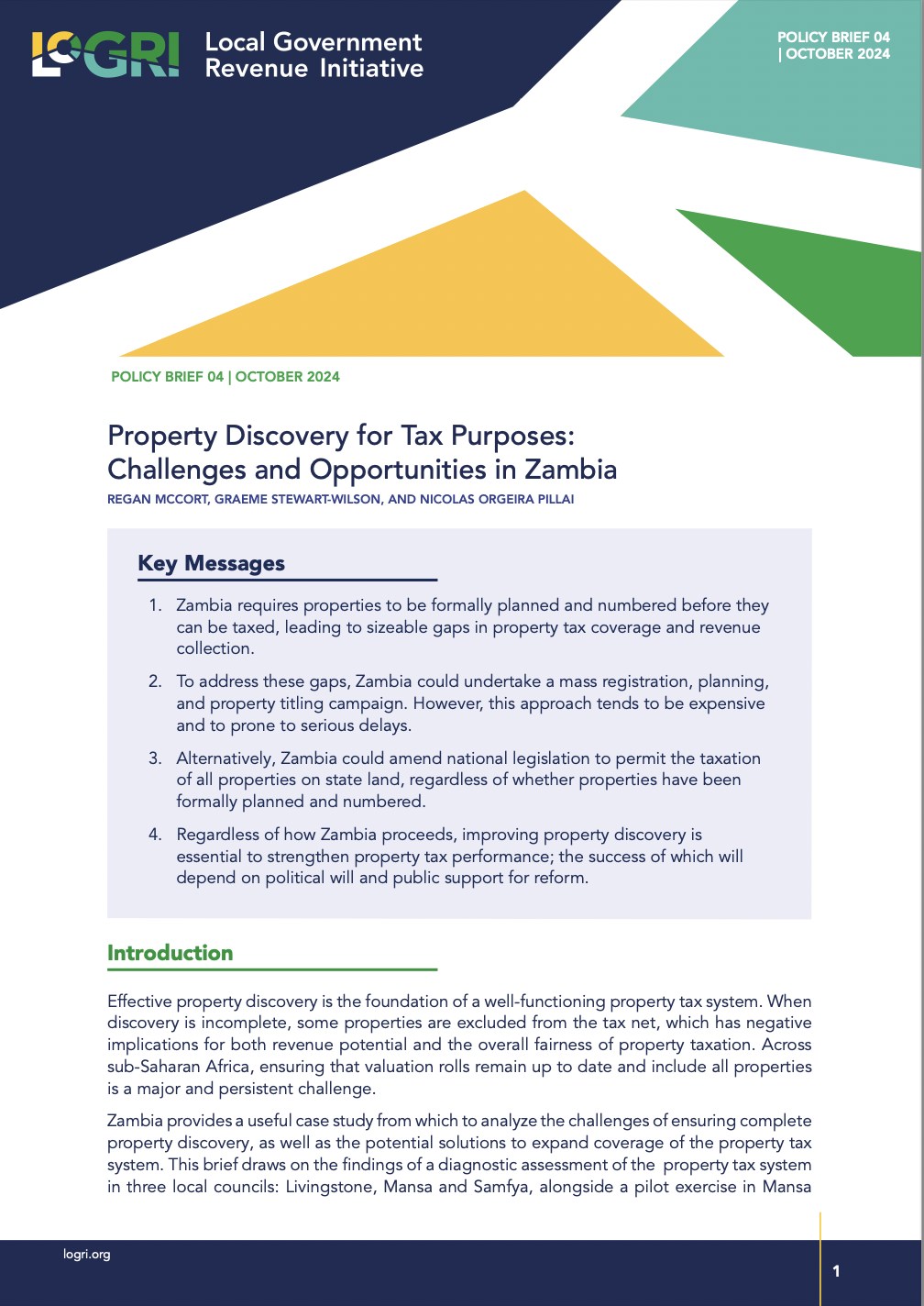Before properties can be taxed, they must first be identified and recorded in a property database. Improving the coverage of property databases is thus the first step in developing more effective and equitable property tax systems. In Zambia, properties require a plot number before they can be registered for taxation, which means they must have been formally planned by the state. As a result, large proportions of unplanned properties are omitted from the tax system, although they are often located close to properties that are registered for taxation. This policy brief, which is based on the Local Government Revenue Initiative’s (LoGRI) diagnostic assessment of the property tax system in Zambia, highlights the main challenges of the current approach to property discovery and argues that a taxation-first approach is the most appropriate strategy to achieve more comprehensive and equitable coverage of the property tax system. Many sub-Saharan countries place similar restrictions on the registration of properties for tax purposes, and this brief will therefore be of interest to a wide range of policymakers looking to improve the coverage and equity of their property tax systems.




